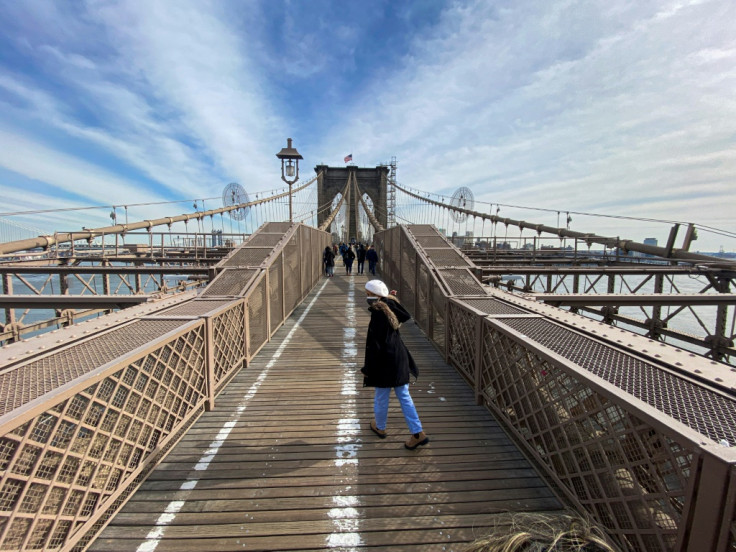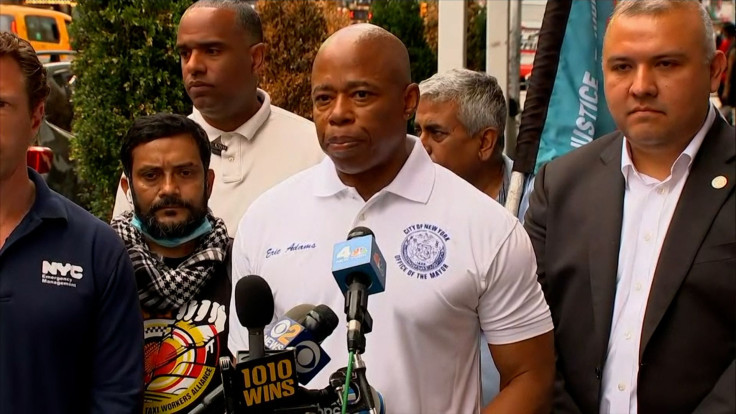
NEW YORK - The Brooklyn Bridge will no longer serve as the local merchant hub it used to be until not long ago. Starting January 2, local vendors who sprung up the pathway of the popular bridge have not been allowed to conduct business in the premises, or any of New York City's 789 bridges, as per a new city guideline.
For decades now, New York City's bridges were occupied by licensed and unlicensed vendors selling a variety of products including New York-branded t-shirts and glasses, Marvel paintings and Mexican maracas. Calling the attention of passing tourists, these small shops would often cause congestion along the bridge's wooden pathway. The new rule seeks to change this.
The new ban aims at easing up the heavily-trafficked area, which saw a spike during the holiday season as tourists made their way to the city. In newly shared videos, Mayor Eric Adams pointed out that this situation turned dangerous as people jumped into bike lanes several feet below the pathway to avoid the large crowds.

"It's not only a sanitary issue, it's a public safety issue," Adams said. "People would've trampled over each other. We need order in this city. That is one of our major landmarks."
To enforce this new rule, police officers were stationed in pairs along the bridge to prevent vendors from setting up shop. Signs reading "no vending allowed" have also been displayed.
Recently, the numbers of tables on the East River crossing multiplied and diversified, as entrepreneurs set up rotating selfie platforms that allowed visitors to take panoramic videos of the city.
With Adams, a retired police captain, exclaiming on Wednesday at a press conference that the bridge is now "clean" and "clear," one question still looms large for the former merchants: what now?
Some sellers said they planned to wait a few weeks to try and make a comeback to their old spots. Others have moved their activities near City Hall, across from the bridge, or in Washington Street in Brooklyn, in hopes that the lesser-profile zone will allow them to remain in the area.
MD Rahman, who has sold hot dogs and pretzels out of a cart on the bridge for 15 years, said he had initially planned to defy city rules, but ultimately chose otherwise at the sight of police officers.
"To punish everyone, it's crazy. I don't know what is going to happen to my family now," he told AP News.
Similarly, Kendall Otway said he began selling merchandise on the bridge last year, working with a group of asylum seekers who have recently arrived in New York City from Ecuador and Senegal.
"Wasn't it the mayor who said they should come here and work?" Otway said, adding that the vendors had become "a staple of New York City now."
© 2023 Latin Times. All rights reserved. Do not reproduce without permission.







